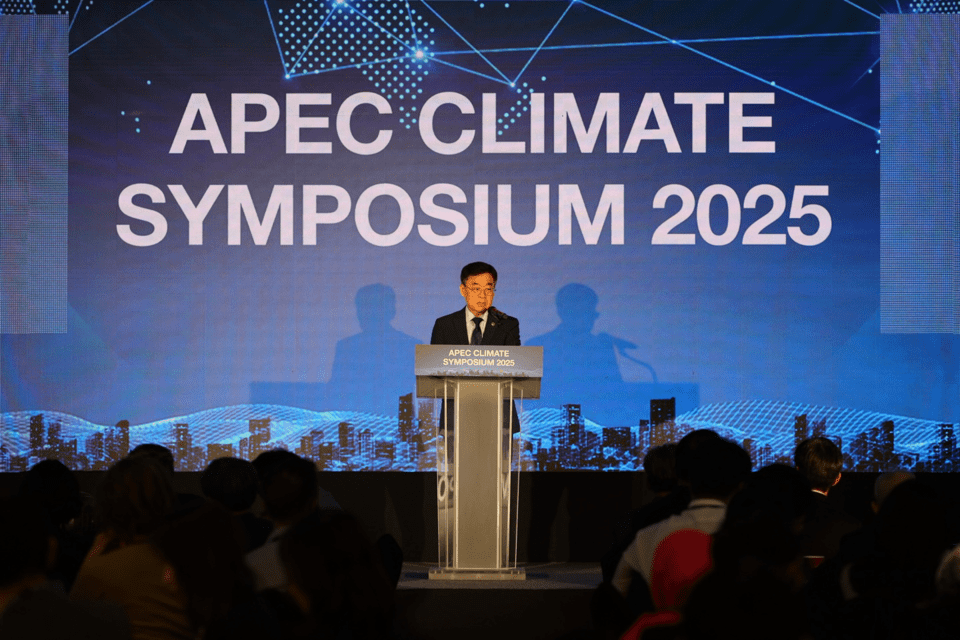The Korea Meteorological Administration, in collaboration with the Asia-Pacific Economic Cooperation (APEC) Climate Center (APCC) and the city of Busan, announced that it will host the ‘2025 APEC Climate Symposium’ from August 7 to 8 at BEXCO Convention Hall in Busan. This event is aligned with the official event commemorating the 20th anniversary of the APCC’s establishment.
The climate symposium is held annually under the support of the hosting government of the APEC Summit. The theme of this symposium is ‘Challenges of Climate in the APEC Region: Exploring Complexity of Climate Crisis Predictions and Response Directions.’ It aims to strengthen the climate crisis response capabilities in the Asia-Pacific region and discuss cooperation measures for a sustainable future.

The opening ceremony on August 7 was attended by Jang Dong-eon, head of the Korea Meteorological Administration, Lee Joon-seung, Busan Metropolitan City Vice Mayor of Economy, Kim Hee-jung, a member of the National Assembly, and Lee Hoe-sung, former chair of the Intergovernmental Panel on Climate Change (IPCC). About 150 participants, including government officials and researchers from APEC member countries, attended the event.
During the keynote presentation, Jim Skea, chair of the IPCC, gave a video presentation on ‘Bridging the Climate Knowledge Gap through the IPCC’s Strategy for the Next Decade.’ Axel Timmermann, director of the Center for Climate Physics at the Institute for Basic Science (IBS), presented research results on ‘Climate Projections Based on Next-Generation Earth System Models.’
The presentation session on the same day focused on ‘Climate Challenges – Causes, Predictions, Achievements, and Future Directions,’ with domestic and international experts sharing insights. Topics included techniques for analyzing the causes of extreme weather and climate phenomena, prediction technologies spanning from seasonal (3-6 months) to decadal scales, and methods of expressing uncertainties in climate predictions. Furthermore, the connection between scientific analysis and policy decision-making was discussed.
On August 8, the presentations continued under the theme ‘Climate Challenges – Adaptation and Cooperation for Enhanced Climate Resilience.’ Discussions covered strategies for adaptation in various fields, including global crop yield predictions and the role of the health sector in climate policy. The focus was on enhancing resilience through climate adaptation strategies and international cooperation cases.
During the discussion period, themes such as strengthening the linkage between climate information producers and users within the Asia-Pacific region, establishing collaborative frameworks between public and private academia, and the need for integrated approaches were discussed. Various opinions on practical and sustainable cooperation models were suggested.
Jang Dong-eon, head of the Korea Meteorological Administration, stated, “The climate crisis is no longer a problem of individual countries but a global challenge,” adding that “this symposium is expected to promote the exchange of technologies and information on extreme weather and climate phenomena in the Asia-Pacific region and serve as a platform for international cooperation and communication in response to climate challenges.”